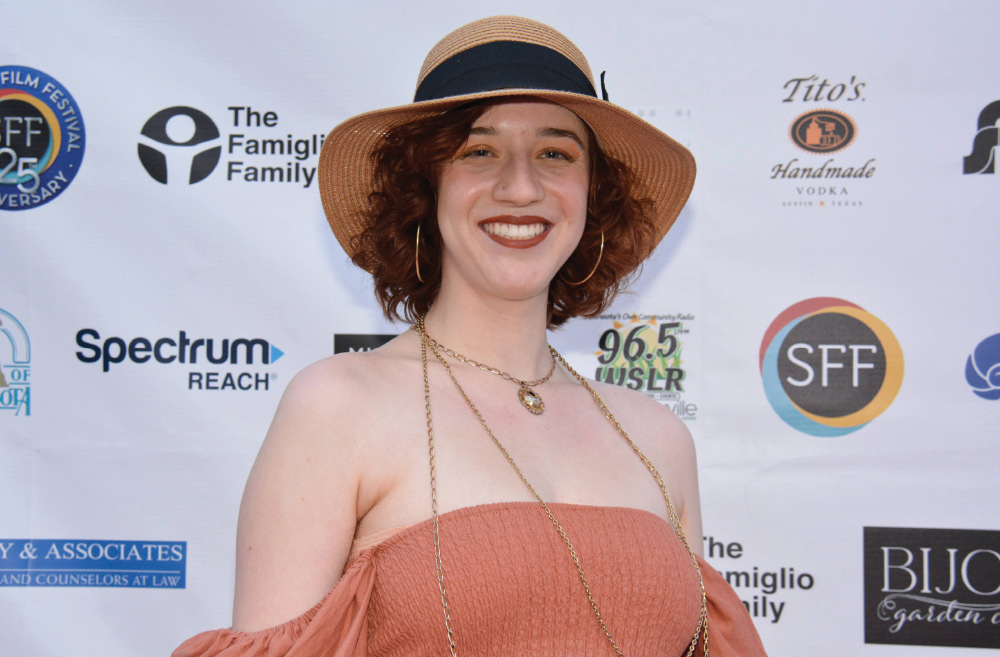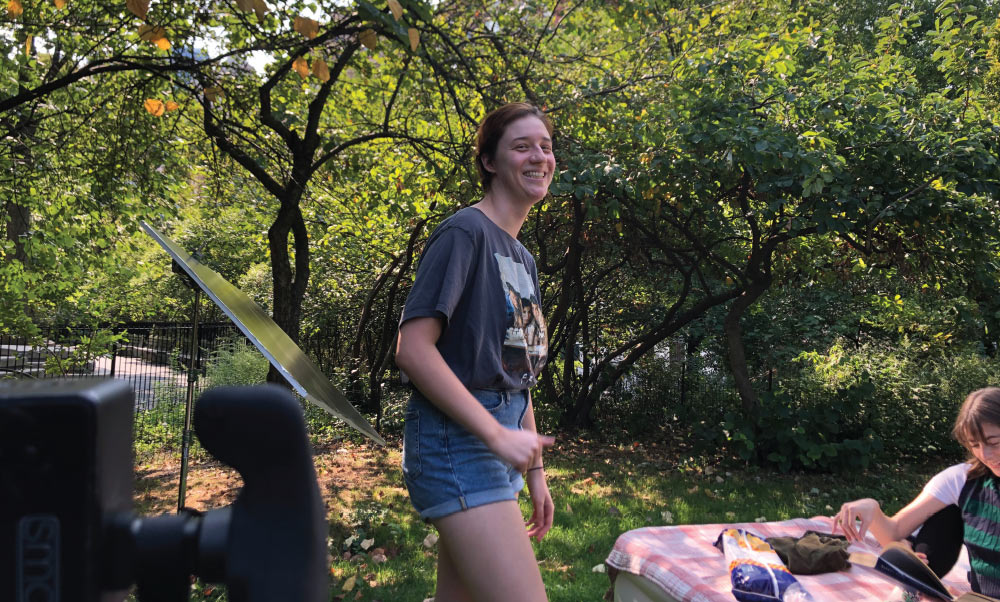An Intimacy Coordinator Explains

Courtesy of Phaedra To Black, LLC
hen Acacia DëQueer (née Willis) started at Vassar as a film major, intimacy coordination in film—today their passion and vocation—did not exist. By the time DëQueer graduated, the #MeToo movement had sparked a demand to protect actors portraying intimate scenes in movies, and DëQueer had found their calling in the field. Now, five years later, intimacy coordinators are a common presence on movie sets. DëQueer, meanwhile, is an extensively trained intimacy professional with a stack of film credits who has been published in the field’s academic publication, The Journal of Consent-Based Performance. In other words, both DëQueer and their profession have come a long way in a very short time.
When DëQueer (a self-described nonbinary “manic pixie dream girl” who uses they/them/their and the neopronouns fae/fem/faer interchangeably) first got to Vassar, they wanted to double-major in drama and film. Their advisor urged them take advantage of Vassar’s liberal arts offerings and diversify. “I’m so glad I did,” they said. “My time at Vassar was spent learning about the issues that I wanted to show in film. It set the foundation for all my work.”
At first, the goal was to direct. “I’m not saying I don’t ever want to direct,” DëQueer said. “But the reason I wanted to direct was because I wanted to tell stories about gender and sexuality. And suddenly, here was this position [where] that’s all I had to do. No one expected me to do anything else or be anything other than I was. It was perfect from the moment I found it.”
After graduation in 2019, DëQueer was able to acquire some training in the field before COVID drove instruction online, giving them access to organizations all over the world. This industry training, along with what they had learned from courses on women and queer studies and from choreographing for Vassar’s burlesque club (they were Vice President), helped DëQueer quickly launch a career in this nascent field.
While the work of intimacy coordinators has become more well known in recent years, the profession involves more than you might assume. “People perceive us as the sex police,” said DëQueer. In reality, their skills are essential to both the work of the cast and crew on set and the story that ultimately appears on screen. DëQueer is involved in any scene that involves close contact between actors—affection between an adult and child, for example; medical intimacy, such as a character giving birth or having a miscarriage; death scenes—“dying in someone’s arms is intimacy,” they said, “and also hard on your emotions.” Part of their responsibility is the psychological safety of everyone on set—foremost the actors, whom DëQueer helps to negotiate and respect one another’s physical boundaries—but also the crew, as anyone witnessing the portrayal of a traumatic scene could become triggered. DëQueer, armed with mental health first aid training, can offer support.

Courtesy of the subject
DëQueer asserts that their career was made possible by their Vassar education. “The film and television theories and history I learned is information I draw on daily,” they said. They got their first job in intimacy coordination thanks to a short film they made in one of Professor Shane Omar Slattery-Quintanilla’s courses. They created their professional website as part of that class; Matthew Mueller, Certified Rehabilitation Counselor, then DëQueer’s advisor in the Office of Accessibility and Educational Opportunity, gifted them their domain name (acacia.gay) for graduation. “[Vassar] supported me and what I do now as an artist, as a social justice advocate, as a person,” they said.
In fact, Vassar was the first place DëQueer learned about consent, from a presentation by a group called Speak About It during first-year Orientation. “It was a light-bulb moment,” they said, and a sort of antidote to the experience they’d had the previous summer, when they experienced their first kiss. When they reported back to their high school friends, “They were, like, ‘Ew, gross, they asked if they could kiss you?’” DëQueer relayed. “[Before I got to Vassar] I had no language to distinguish a consensual encounter from a nonconsensual one. It was the first time I learned that consent was something desirable, or an aspect of intimacy at all.”
In a full-circle moment, DëQueer returned to campus last year to perform with Speak About It during Orientation, providing that same light-bulb moment to students at the start of their college careers.
What else would they like to share with today’s students? “Focus on what your passion is,” they said. “There is a career out there for you that absolutely supports that. I didn’t know mine—mine literally didn’t exist when I started at Vassar, but here I am, living my dream that I didn’t know to dream.”